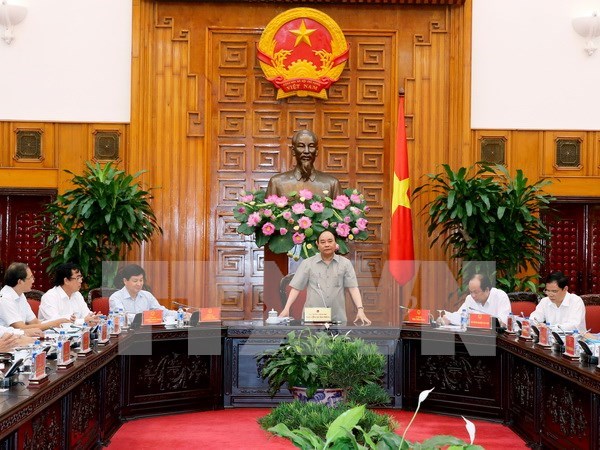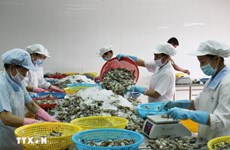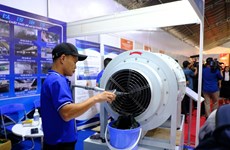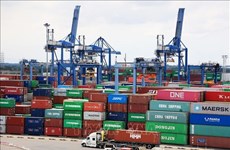Shrimp farming to drive Bac Lieu’s agriculture
Prime Minister Nguyen Xuan Phuc has given a nod to the Mekong Delta province of Bac Lieu to set up a high-tech agriculture zone aiming to make shrimp breeding a locomotive of the local agriculture.
 The working session (Source: VNA)
The working session (Source: VNA)At a working session with the provincial leaders in Hanoi on September 20, the PM urged Bac Lieu to accelerate the disbursement of capital for infrastructure, encourage startups and heed human resources development.
Bac Lieu should roll out both short- and long-term solutions to cope with climate change, he said, requesting the Ministry of Natural Resources and Environment (MoNRE) to set forth comprehensive solutions to assist the Mekong Delta region and the province in particular in the combat.
To spur economic growth and generate jobs, it is necessary to speed up land clearance for processing and industrial projects, the leader noted, asking the ministry to reduce salt output, avoiding overcapacity of the sector.
The Ministry of Transport was required to coordinate with Bac Lieu in seeking capital for local road transport. Other ministries were also asked to help the province attract major projects promoting local economy.
Bac Lieu is one of the Mekong Delta localities most affected by climate change, which has prompted the province to make aquaculture an economic spearhead over years.
The province boasts the largest aquaculture area in the region with nearly 1,280 sq.km, equivalent to nearly half of its natural land. Its seafood export is expected to hit 3.2 billion USD this year.
Of note, the locality earns about 500 million USD each year from the shrimp farming. With an annual output of some 105,000 tonnes, Ca Mau has become the second largest shrimp producer nationwide with diverse breeding models.
The province’s economy grew by 5.09 percent in the first half of this year. Due to its dependence on agricultural production, the local economy has been seriously affected by the lingering drought and salt water intrusion which have damaged 1,300 hectares of rice and 14,000 hectares of shrimp.
The local rice sector is facing a galaxy of difficulties due to the fierce competition with Thai rivals. Climate change has also exerted serious impacts on local salt industry.-VNA












